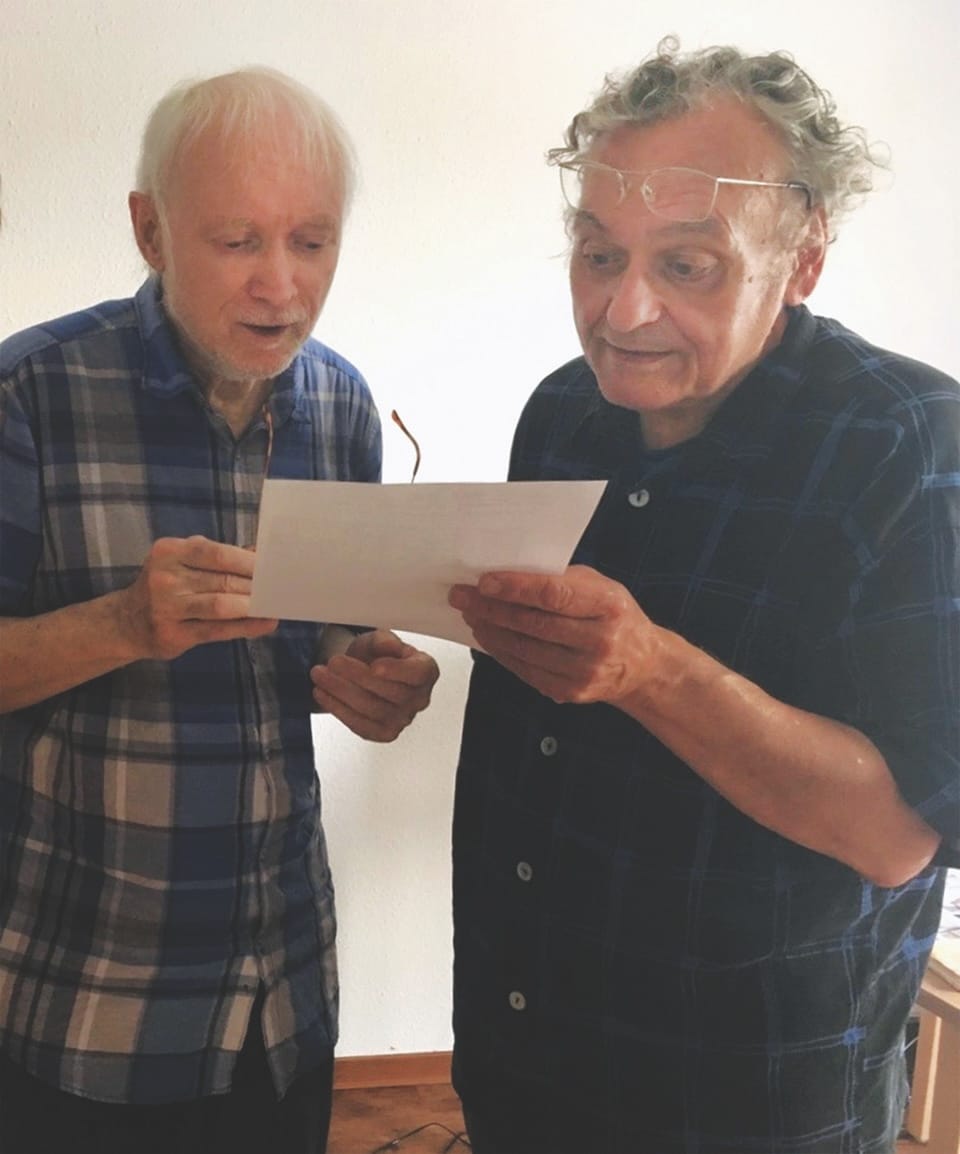Herbert Henck
Herbert Henck, born in 1948 in Treysa, Hesse, the son of a neurologist, only gradually developed into a “specialist for the music of the 20th century”. After his mother introduced him to the piano at an early age – “in a playful way” – and his son’s unusual musical and pianistic talent soon became apparent, he attended the conservatory in Mannheim in 1959 with Gieseking student Doris Rothmund, who introduced him to Debussy and Ravel. Henck’s career goal was decided at the latest after he won first prize at the Baden-Württemberg Piano Competition in 1965: After graduating from a humanistic grammar school, he began studying at the Stuttgart Musikhochschule in 1967. His piano teacher was Arno Erfurth, his composition teacher Helmut Lachenmann, who sometimes brought music by Stockhausen to his lessons. At the same time, Henck attended lectures by Erhard Karkoschka, “whose enthusiasm for new music was communicated to many of us at the time”.
On Lachenmann’s recommendation, Herbert Henck went to the Cologne University of Music in 1970 to study with Aloys Kontarsky, the pianistic protagonist of the “Mecca for New Music” at the time, whose teaching would soon prove to be extraordinarily fruitful.
“Kontarsky had a great influence on me. He was a modern man and someone who had personal contact with composers. That permeated his teaching. He also quickly brought me into contact with Stockhausen. And to experience Stockhausen as a person, to hear him speak and not just his music from tapes or records, those were very important experiences. These were real artists I was dealing with, creative people who pursued ideals, which is something you are very receptive to as a young person.”
The results of this encounter were his participation in the world premiere of Stockhausen’s Goldstaub (Aus den sieben Tagen) recorded for Deutsche Grammophon in 1973. Henck’s interpretation of the Piano Piece X, for him “one of the key experiences of new music, where completely new piano colors are developed through glissandi“, earned him the Kranichstein Music Prize in 1972. His first solo record, Charles Ives’ Concord Sonata, was released by Wergo in 1978 – a brilliant start to a series of recordings that has since grown to over fifty.
Henck’s manual aplomb, his interpretative competence gained from thorough preparation and extensive knowledge, his intellectually and emotionally inspired, clear and lively playing soon made him one of the most internationally sought-after pianists for the music of the 20th century. Many composers entrusted him with world premieres, including Walter Zimmermann (Beginner’s Mind), Wolfgang Rihm (Piano Piece No. 5) and György Ligeti (Piano Etudes 1 and 2). “Of course there is a certain pride in being the first, because that has something to do with originality. It is always a new beginning for an aesthetic experience, the outcome of which is uncertain and which, as a result, often involves a greater risk than further performances. But I don’t get worked up about it.”
— © Monika Fürst-Heidtmann
Walter ZIMMERMANN: Beginner’s Mind, Abgeschiedenheit — Herbert Henck, piano. mode 346

